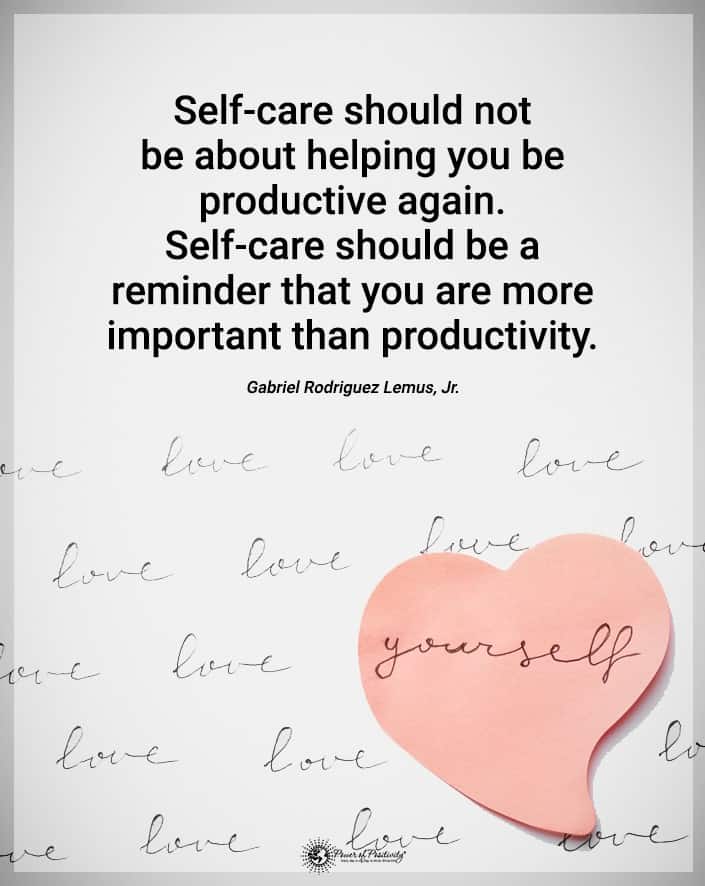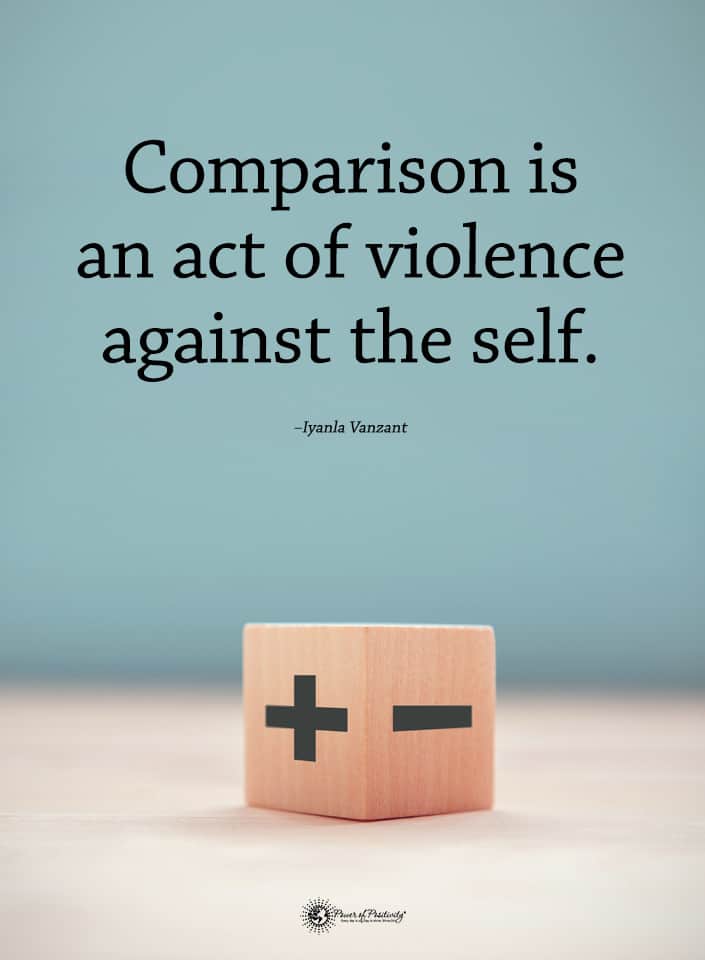Are you obsessed with winning?
Everyone wants to win, but many people don’t have the drive to get there. On the flip side, though, there are people with all the drive that they can muster, a razor-sharp focus on the concept of winning, and a powerful idealization of the result of such success.
Yes, on the surface, it sounds like being obsessed with winning is a good thing. Wanting success so badly that you’ll do anything for it is how many of us have been conditioned to achieve our goals. But that may be working against you. And it’s damaging your mental health, too. Here’s how being obsessed with winning makes you more stressed and anxious.
1. Your Focus Shifts When Obsessed With Winning
The goal of winning is a perfectly sound one, and many people have one. But there’s a difference between wanting something and being obsessed with it. When you’re too obsessed with winning, your focus changes. So your priorities shift to make the concept of simply “winning” your entire life and goal.
This kind of focus shift can damage your emotional and mental wellbeing, adding stress to your life from these lofty goals and making you anxious with every perceived “loss.” If all you want to do is win, the things that usually help you feel better don’t work out. Here are some ways that your focus may shift so that stress and anxiety are heightened.
· You Forget Your Passions
Winning can be all-consuming, and it can make you forget that passions aren’t things you need to win at. Sometimes, passions can even be wholly separated from something where you face competition. Without passion in your life, you’ll lose positive thinking and feel more anxious and stressed out, and you may even lose your sense of passion because of how much you focus on “winning” it rather than simply enjoying it.
· You Forget What Truly Matters
Did you know that the happiest people who claim to have led the best, most positive lives never consider “winning” to be among the reasons for their happiness? That’s because research shows that the happiest people are those who focus on what matters: loved ones, loved activities, and what makes you truly happy outside of all the competition. Your obsession with winning can rob you of that happiness, which doesn’t help your mental state.
· You Focus On Other People’s Ideas Of Winning
Not everyone has the exact definition of what it means to “win,” and you need to define what that success would look like and mean to you. Unfortunately, an obsession with winning will make you focus on other people’s ideas of what success is to them, and you’ll chase – and maybe even achieve – these things and still feel empty inside. That’s a quick way to get stressed out from all your effort and anxious from all your perceived inability to find a “win”!
2. You Damage Your Social Relationships
The relationships you have with others are essential. You need at least a small positive support system to have your best mental health, and anxiety and stress may begin to mount when you don’t have that in your life. And, of course, the strain of managing complex social interactions is often a source of negative emotions that can ruin your stress levels. Here are some ways that an obsession with winning damages social relationships:
· You Lash Out
An obsession with winning can turn you into a sore loser. When you don’t win, you lash out harshly at the people around you, hurting them due to something petty and relatively unimportant and thus damaging your relationships with them.
· You Turn Everything Into A Contest
People want to have fun. But you also want to win, and that can put a real damper on an otherwise enjoyable time. No one wants to hang out with someone who takes everything way too seriously. If you keep ruining game nights, it’s time to chill out.
· You Try To One-Up Everyone
A little healthy competition is a good thing, but sometimes you need to support and be supported by those around you. Others have successes and wins that they want to celebrate, too, and it’s not all about you and how much better you think you’re doing. One-upping everyone is pointless and is a poor attempt at attention-grabbing that will get tiresome for people.
3. You Compare Yourself To Others
Obsession with winning means obsession with competition, so you’re going to start checking out the people who you consider your competition. This makes you ripe for falling into the trap of constant self-comparison. You might:
- Attempt to match up with the progress and work of others, even if their methods don’t work well for you
- Change your ideas of success regularly to be “whatever the person closest to the finish line has.”
- Desire the wins of others, even when there’s no possible way to get them due to separate contexts and circumstances
- Become complacent when you think you’re further ahead than others, setting yourself up for a “tortoise and the hare” type of situation
- Become discouraged when you can’t seem to have precisely what other people do
Some kinds of self-comparison can be helpful. Looking to people who are successful for inspiration is a fantastic way to learn from them and apply knowledge to yourself. But there’s a line to draw with that motivation. Too much comparison and your positive thinking drop as you desperately try to keep up with what you see in others.
Comparison is always a little flawed because you know all your worst sides, but you only see the positive sides that they choose to show to the world in others. You don’t know what is going on in the lives of others, what is helping them, and what their journey is, so you’ll never have an accurate comparison here.
4. You Don’t Practice Self-Care
To achieve success accurately, you must be in good health. It is challenging to give chasing a goal your all when you’re tired or burned out. Unfortunately, an obsession with “winning” tends to make you push yourself too hard. You’ll be unable to focus on what you need and may not even realize that those needs are screaming for your attention!
Of course, all acts of “winning” can require a little bit of sacrifice. But that shouldn’t come at the cost of self-care. Without self-care, your stress and anxiety will mount as your positive thinking depletes. Believe it or not, part of successfully winning is knowing when to rest and give yourself a break! Make sure you:
- Get enough sleep. It would be best if you were aiming to achieve at least seven hours of nightly sleep.
- Eat and drink well. Your body requires the proper nourishment to stay strong, and you can’t win without the right nutrients.
- If you feel tired, listen to your body. You will need to set some things out and even back out of a few things. That’s okay!
- Pencil it regular “me-time” for your schedule where you’re not allowed to do anything other than rest. Then do something that isn’t related to your goals of winning.
5. You Focus On Preparation, Not Doing
To win, some degree of preparation is needed. It would be best if you had the right tools, suitable equipment and may even need to be strategic about things. But all that focus on preparation has a limit. At some point, you need to do, not just think about doing and get ready for action.
An obsession with winning can cause you to focus so much on the desire to win that you lose sight of the fact that you need to make an effort to get there. You may constantly wait for the “right time,” assuming that other people’s success is only due to their tools and trick yourself into thinking that what you’re doing is wise and a mark of patience. In reality, you’re avoiding action and delaying the vital part of the competition!
Over time, all the anticipation you collect from “getting read” can cause anxiety and stress, and it’s a deadly cycle. That stress and anxiety can then make you feel like you need to prepare more. The sad part is that you could’ve gotten so much farther if you’d just stopped “preparing” and started “doing”! Preparation cannot prevent failure; the best way to succeed is to keep trying actively.
6. You Aren’t Grateful For Wins
Gratitude is one of the critical components of positive mental health. You can often be anxious and stressed when you’re not grateful. Worse yet, a lack of gratitude may even contribute to a lower chance of “winning” in the way you want to.
Here’s why:
- Gratitude allows you to focus on the good things in life, finding silver linings in even the darkest clouds. When you don’t have an appreciation, difficult times become sources of disappointment that prevent you from striving for wins and facing hurdles head-on.
- Gratitude teaches you to be grateful for the lessons that come with your losses. In turn, this outlook helps you win more. When you’re not thankful, you take losses personally as a massive sign of your failings. You can’t learn from them. Thus, you tend to make the same mistakes again and again.
- Gratitude is critical to have in life, and it can rewire your brain to train itself on positive things. That’s the kind of mindset you need to win and be successful. But ironically, you can’t find that mindset if you’re too obsessed with winning.
Final Thoughts On How Being Obsessed With Winning Makes Us Stressed And Anxious
The world has convinced us that we must constantly be on our “grind” to win, but that’s not how humans behave. It would be best if you were motivated to win and desire to do so, but don’t take it to the point of obsession. You’ll only make yourself anxious and stressed out!

















 Community
Community

